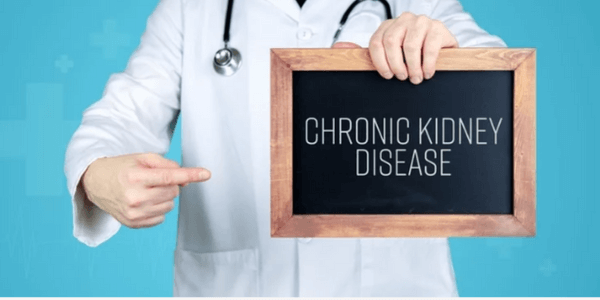Let’s delve deep into the realm of chronic renal illness, an area often shrouded in complexity but one that holds essential knowledge for those seeking to understand and manage kidney-related concerns.
Decoding Chronic Kidney Disease
Chronic kidney disease is an umbrella term encompassing various kidney-related issues, each with its unique characteristics and underlying causes. The primary forms of chronic kidney disease include:
- General Chronic Kidney Disease: This condition is predominantly associated with diabetes, making it one of the most prevalent forms of kidney-related ailments.
- Polycystic Kidney Disease: A distinct variant characterized by the presence of fluid-filled sacs surrounding the kidneys, causing them to lose their filtering efficiency. This genetic condition is responsible for a notable portion of end-stage renal disease cases.
- Kidney Stones: While often seen as a separate concern, kidney stones can contribute to kidney-related complications, and we will explore their connection shortly.
If you find yourself facing any of these kidney problems, this article holds valuable insights that may reshape your understanding of renal health.
Polycystic Kidney Disease: Unraveling the Genetic Enigma
Polycystic kidney disease, responsible for 10% of end-stage renal disease cases, presents a unique challenge. In this condition, the kidneys become overwhelmed by fluid-filled cysts, hampering their filtration abilities. As these cysts multiply, protein accumulation in the bloodstream and fluid retention become common issues.
While traditionally considered a hereditary issue, recent developments have shed light on potential interventions. Surprisingly, a study in 2019 revealed that a ketogenic diet effectively halted and even reversed polycystic kidney disease in mice. Moreover, time-restricted eating, a form of intermittent fasting, exhibited similar benefits, slowing cyst growth and associated fibrosis. These findings build upon earlier discoveries that the ketogenic diet, when paired with a low-oxalate diet, reduces the risk of kidney stones.
Crucial Discoveries in Polycystic Kidney Disease
A pivotal revelation emerged from these studies: the cysts in polycystic kidney disease actively absorb glucose and rely on it for growth. This newfound understanding offers a promising avenue for intervention—reducing glucose intake. While conventional medicine may explore pharmaceutical interventions, a more practical approach lies in adopting a low-carb diet, such as the ketogenic diet, known to lower glucose levels and promote ketone production.
It’s worth noting that cysts may not be exclusive to the kidneys, as similar principles apply to liver cysts and Baker cysts. Eliminating sugar from one’s diet often leads to the natural regression of these cysts. Additionally, metformin, a medication used to manage insulin resistance and blood sugar, has shown promise in addressing liver cysts.
Three Pathways to Ketosis
To embark on the journey of ketosis, there are three primary pathways:
- Low-Carb Diet: A fundamental approach involves reducing carbohydrate intake, prompting the body to shift into ketosis.
- Ketone Supplementation: Although not recommended for everyone, consuming ketones directly can induce a state of ketosis.
- Fasting: Intermittent fasting serves as a potent natural mechanism for the body to produce ketones from stored fat, facilitating ketosis.
Comprehensive Kidney Health Protocol
Whether you’re grappling with polycystic kidney disease or other forms of chronic kidney illness, a holistic approach can enhance your renal health. Here’s a suggested protocol:
- Phytonutrient Supplementation: Incorporate phytonutrients from herbs like curcumin and resveratrol to support kidney function.
- Low-Oxalate Ketogenic Diet: Adopt a diet that’s both low in carbs and oxalates, limiting foods like almonds, spinach, almond flour, and kiwis.
- Intermittent Fasting: Consider integrating intermittent fasting into your routine to promote kidney health and inhibit fibrosis.
In conclusion, the complexities of chronic renal illness may appear daunting, but emerging research offers hope and actionable steps. By leveraging the power of diet, fasting, and phytonutrients, you can embark on a transformative journey towards better kidney health, potentially reversing or mitigating the effects of these conditions.
